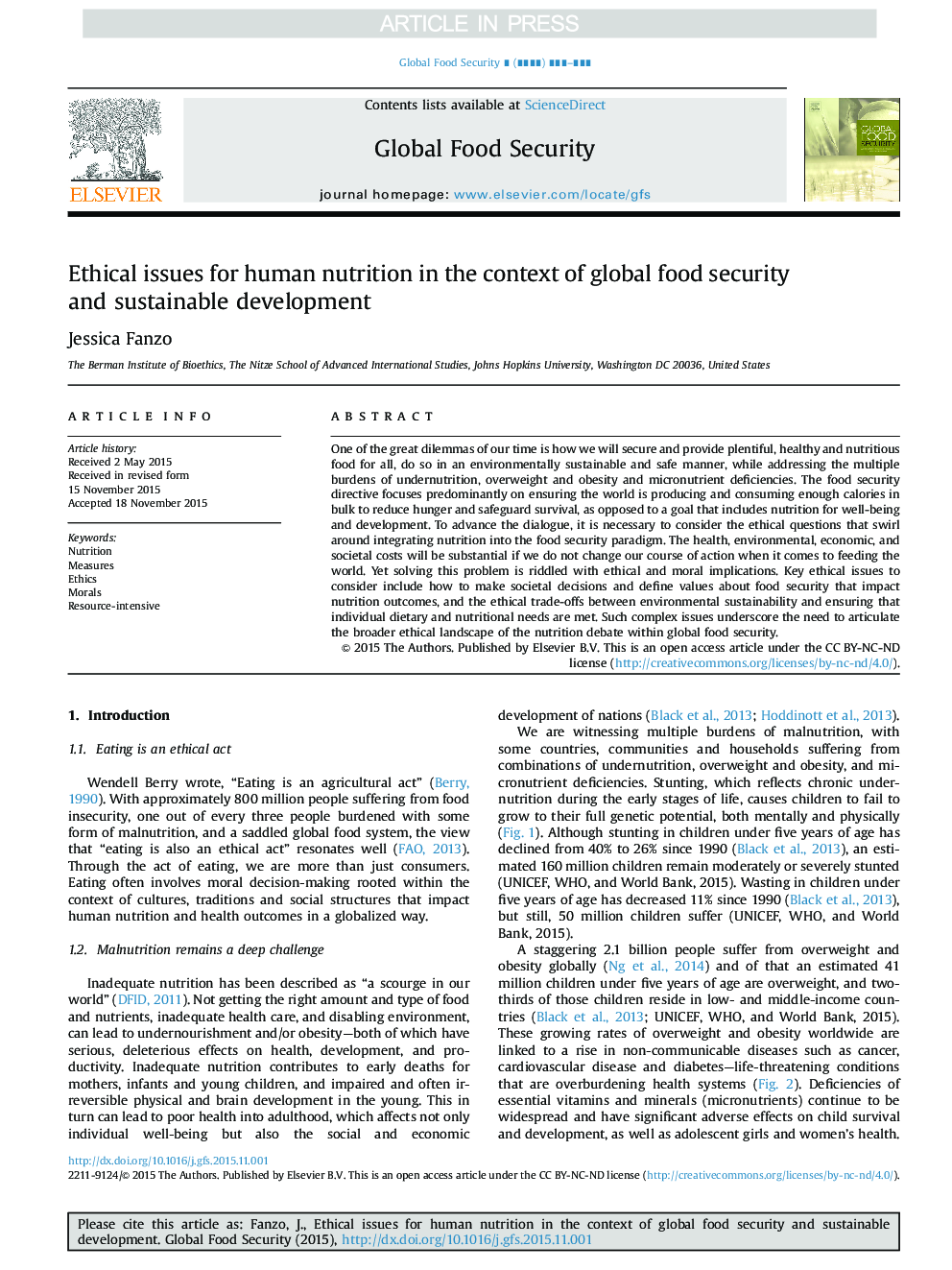| Article ID | Journal | Published Year | Pages | File Type |
|---|---|---|---|---|
| 7454671 | Global Food Security | 2015 | 9 Pages |
Abstract
One of the great dilemmas of our time is how we will secure and provide plentiful, healthy and nutritious food for all, do so in an environmentally sustainable and safe manner, while addressing the multiple burdens of undernutrition, overweight and obesity and micronutrient deficiencies. The food security directive focuses predominantly on ensuring the world is producing and consuming enough calories in bulk to reduce hunger and safeguard survival, as opposed to a goal that includes nutrition for well-being and development. To advance the dialogue, it is necessary to consider the ethical questions that swirl around integrating nutrition into the food security paradigm. The health, environmental, economic, and societal costs will be substantial if we do not change our course of action when it comes to feeding the world. Yet solving this problem is riddled with ethical and moral implications. Key ethical issues to consider include how to make societal decisions and define values about food security that impact nutrition outcomes, and the ethical trade-offs between environmental sustainability and ensuring that individual dietary and nutritional needs are met. Such complex issues underscore the need to articulate the broader ethical landscape of the nutrition debate within global food security.
Related Topics
Life Sciences
Agricultural and Biological Sciences
Agronomy and Crop Science
Authors
Jessica Fanzo,
